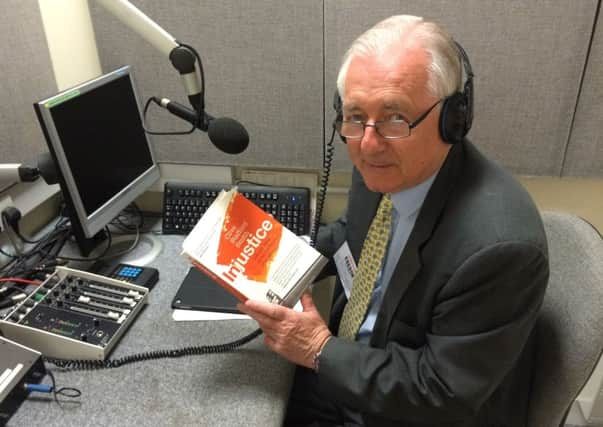SIR PETER BOTTOMLEY: Not guilty as charged


Virginia was there; I was landing in Miami, Florida helping Krishna Maharaj’s team to try to gain him a new trial. He had been convicted in 1987 for a double murder.
There have been constituency cases which required persistence. One of my first was a young man wrongly convicted of attempting to steal from a London Underground passenger’s handbag. He was serving a sentence when I visited him. He decided not to appeal because he wanted to return without delay to work in his bank: they also were convinced of his innocence. Years passed before we discovered that a crucial ‘witness’ had a long record of fake testimony in similar cases. My constituent was cleared.
Advertisement
Hide AdAdvertisement
Hide AdIn our country there have been on average seven murder convictions overturned each year because it became clear that the accused could not have been the killer or because unknown or hidden evidence showed the conviction was not safe.
The result of the effort in 1997 was an order for a re-sentencing hearing: should the death penalty be kept? The defence (defense in the USA) lawyer Clive Stafford-Smith was threatened with prison if I or any other witness argued again that innocence was a good reason not to execute Krishna. The jury decided death should be replaced by a term of years so long it would be until the end of life. A plea for clemency to the State governor failed.
Now, 30 years after the original conviction and 20 years since I became deeply involved, the Federal Court has ordered that the District Court should consider new evidence and reconsider the old evidence.
This week I joined the BBC Radio 5 Live discussion. Adrian Chiles interviewed Marita Maharaj, the brave wife, Clive Stafford-Smith and me. The damning details came easily to mind. Krishna had an interest in the victims living, not dying. Those interested in them being eliminated included Columbian drugs barons. They were angry that the ‘innocent businessmen’ had been stealing the drugs money. The prosecution concealed their knowledge of the pair setting up drugs money accounts around the Caribbean.